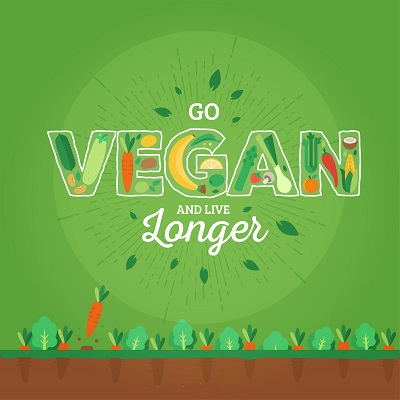 There has always been a lot of debate on the topic of the human diet.
There has always been a lot of debate on the topic of the human diet.
Nutritionists, health experts and even some doctors have all come up with different ideas, and it can be very difficult to distinguish the true experts from the snake oil salesman.
Over the last century, humans have nearly doubled their lifespans, as a result of the advances of medical science. Biologically, we could live about 150 years, if not for some processes and environmental factors.
A person with a less poetic tendency would state that we are nothing but a bag of chemicals. Crude as it may be, this description is quite accurate, given the intricate biological and chemical networks that run our bodies. These chemicals do not last forever, especially organic compounds, so they need constant replenishment.
Living organisms first started to assimilate energy and chemicals from the sun and environment, assuring their survival. But “cheaters” arose, beings that discovered that if you eat another organism and steal its energy, it’s more efficient than a solar panel.
Since then, animals, plants, protozoans and bacteria have adapted to this new predator-prey dynamic. Some eat organisms, while others take energy from the sun. Technically, even vegetarians are predators, they just prefer not to eat animal flesh.
So, are vegetarian diets good for you, or can they damage your health?
In order to get to the bottom of this question, we must first get ethics out of the way. It is safe to say that cows, pigs and chickens feel much more pain when they are killed, as compared to a stack of celery. If you have the willpower to renounce meat, because it will lessen the suffering of other living beings, more power to you! It is a valid and noble pursuit.
But, is it better or worse on your body?
Vegan diets are often marketed as a better alternative to traditional ones. Technically speaking, dietary restrictions are rarely helpful. Humans are not plant eaters, and we are not carnivores. Just like pigs, some rodents, and even bears, we are omnivorous. We can, and will eat both.
Recent studies have shown, that on average, American vegetarians tend to live a decade longer than their meat loving counterparts. But, if there is no inherent benefit to Veganism, how come these vegetarians are much healthier? Well, it is all about excess.
In our natural environment, sugars, salt and fat are extremely rare. Our bodies are programmed to get an enormous amount of pleasure each time we consume them, encouraging us to eat more of these scarce lifesaving chemicals. The problem is that we haven’t lost that instinct. We adore those substances, even in the 21st century, when they are dirt cheap.
In some places, a hamburger is cheaper than a stick of gum. Given this massive craving, and the fact that we have no natural barriers, we eat fats and meat until it kills us. We aren’t designed to eat this much meat, it’s not the meat itself that is the problem, it is how much of it that we consume.
Seeing as vegetarians have shunned meat completely, their lifespans are not affected. The correlation between an exclusive plant diet and health is coincidental. Those that don’t go to the beach, have a 0% chance of getting eaten by sharks. That doesn’t mean that the beaches in that area are shark free.
Vegans don’t consume meat and fat in excess, virtually eliminating the risk factor. Even Tibetan monks that can have lifespans well over a century are falsely represented. It is true that they are vegan, but, they get their protein from the insects that happen to get caught in their rice harvest. In the scientific community, this is called a false correlation.
In conclusion, if you are worried about the loss of habitat due to farm animals, the poisoning of the air from methane, or about the suffering of slaughtered creatures, go ahead be a vegan.
But, know that there is no inherent benefit or superiority tied to this life style. In moderation, almost every dietary staple is good for you.
Nutritional Deficiencies
If you are a vegan or vegetarian then make sure that you get ample amounts of protein and iron into your diet that normally come from meat products. Beans, and cruciferous vegetables can be good sources.
Calcium is another concern for vegans as they do not eat eggs, milk or cheese. Supplements can help along with, collard greens, broccoli, Kale and Edamame.






